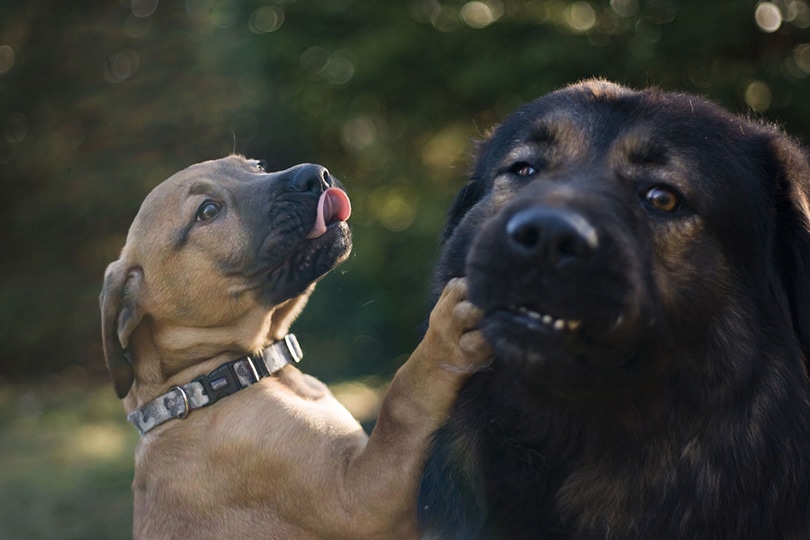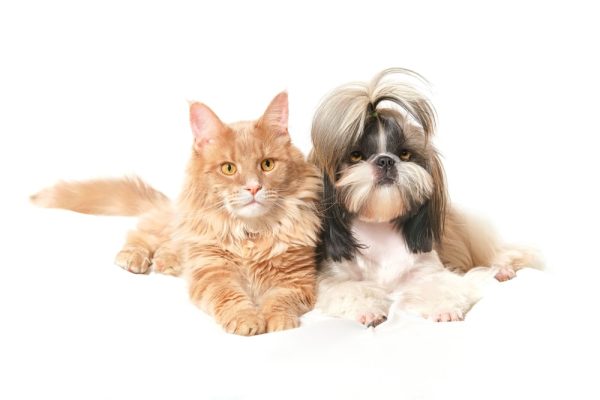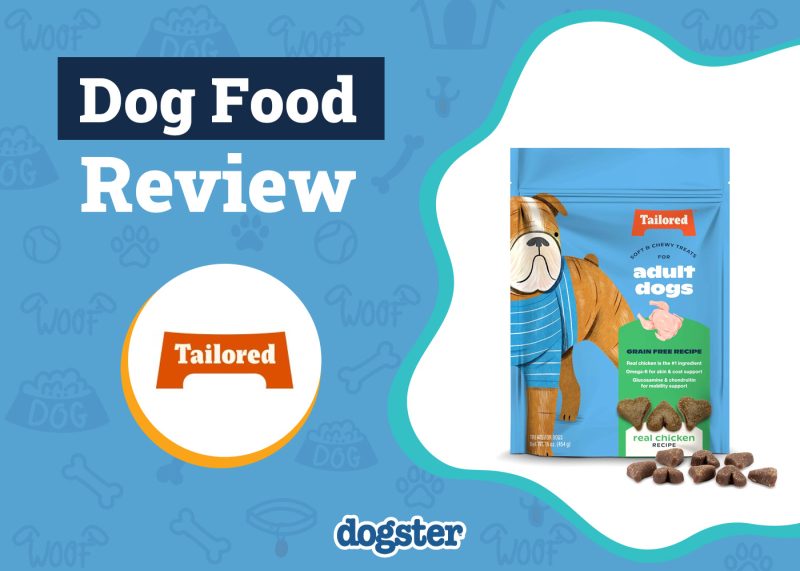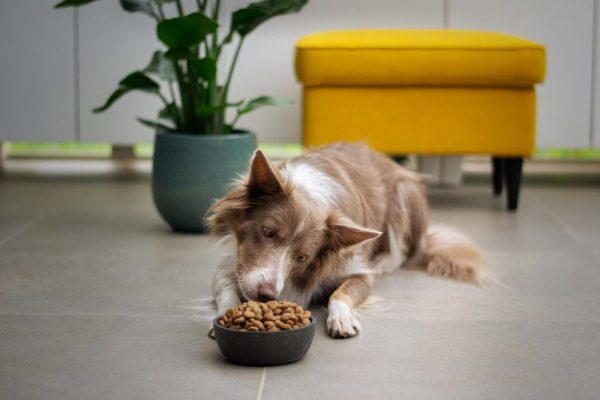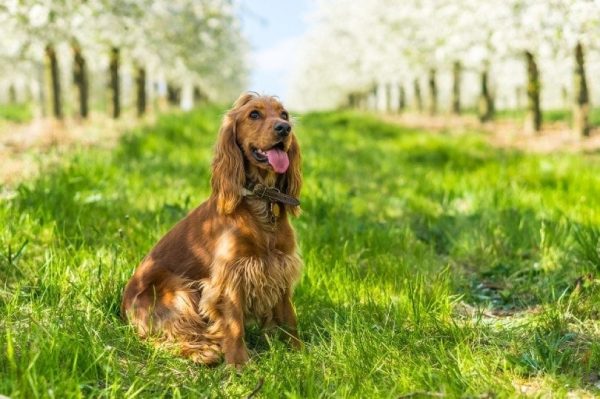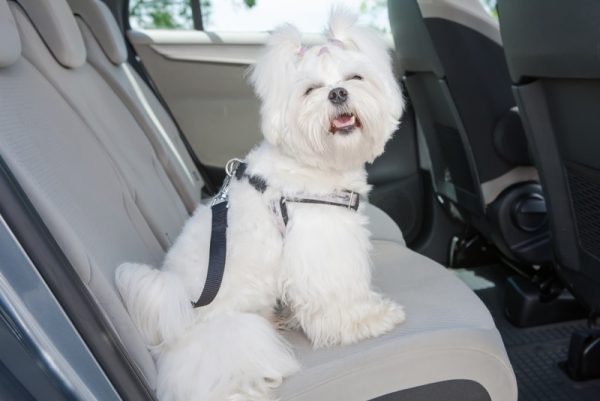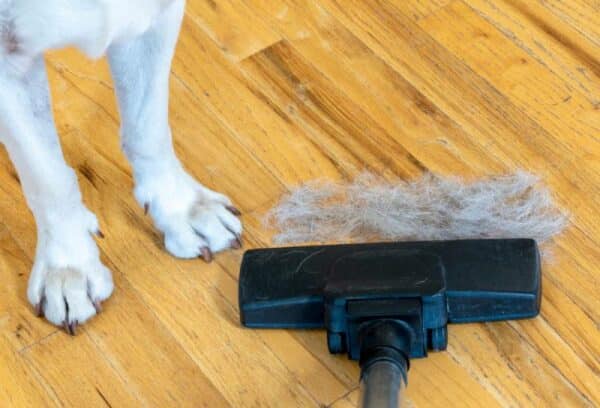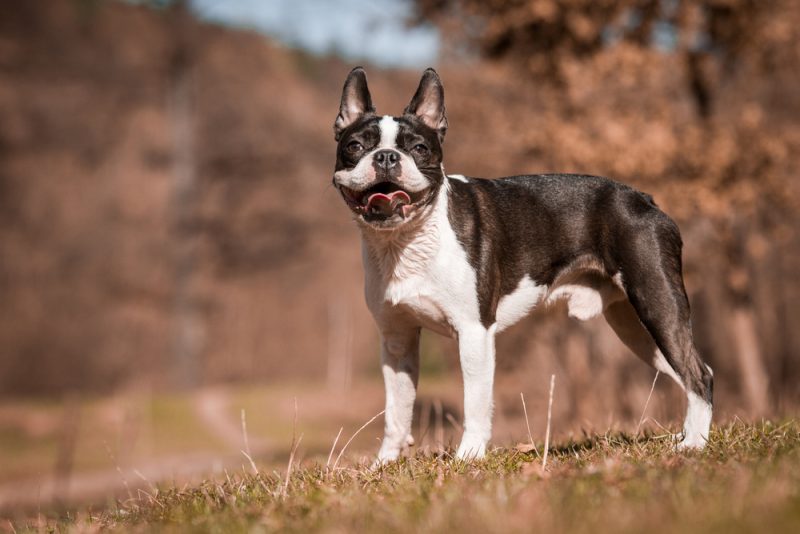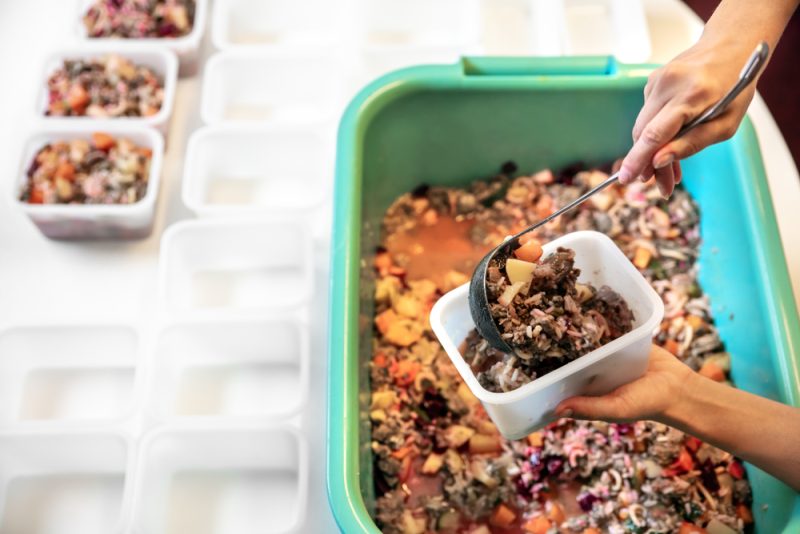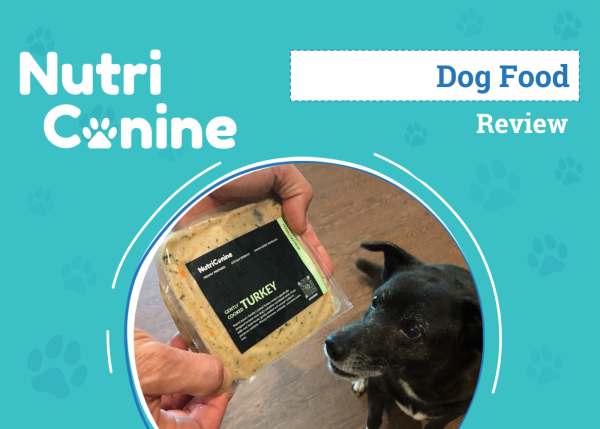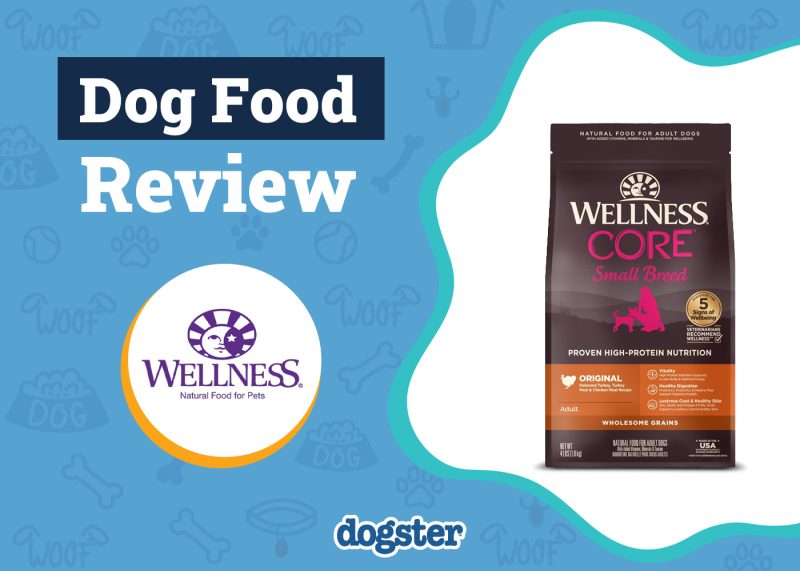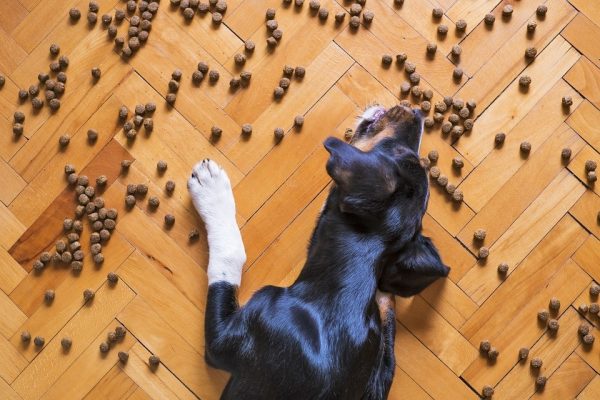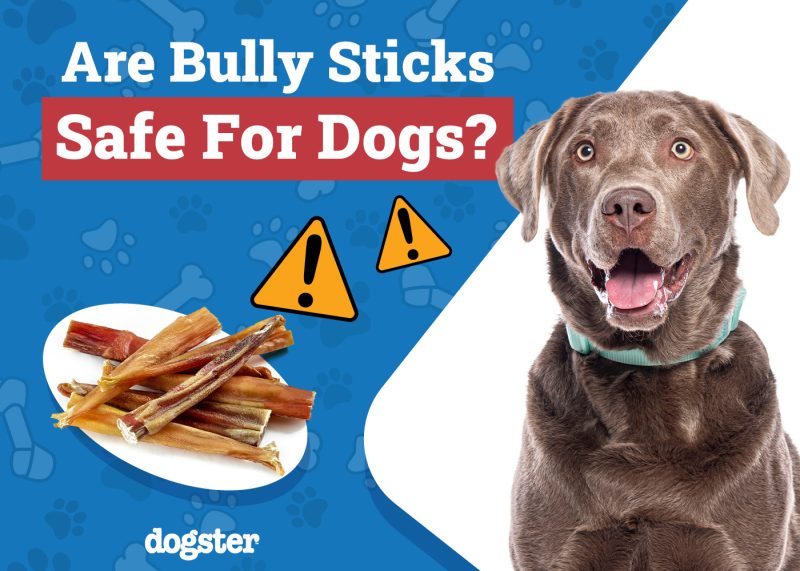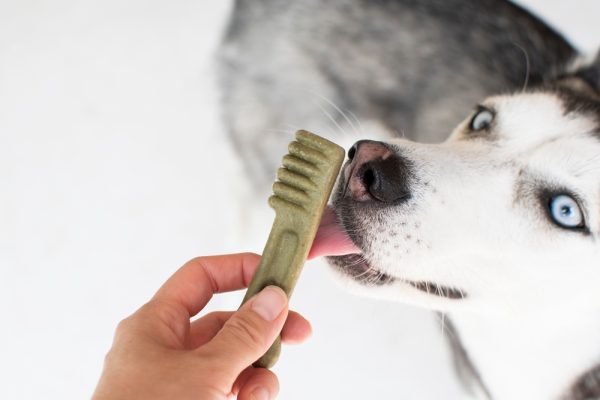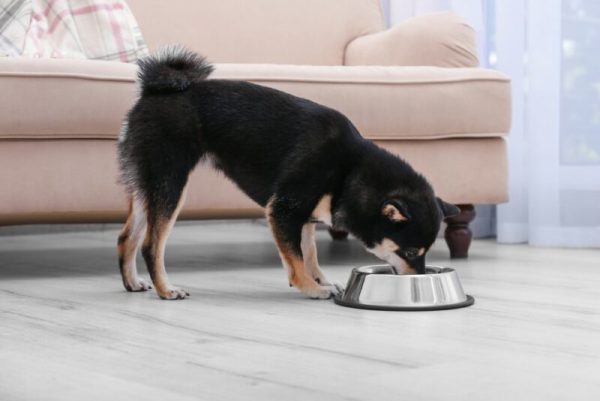In this article
Mother dogs nurture their young and recognize their puppies. They will reject litters they did not give birth to while carefully nursing and nurturing their own. But what about father dogs? Do male dogs recognize their puppies? Male dogs do not appear to recognize their own puppies, but it’s difficult to make a conclusive statement about whether this is the case. Male dogs treat puppies differently than adult dogs, but it’s hard to determine whether this is a simple recognition that they are babies or they know that the puppies belong to them.

Do Father Dogs Have Paternal Instincts?
It’s generally recognized that male dogs don’t recognize their puppies and do not harbor paternal instincts. Their paternal instincts are generalized rather than specific to their litters. Dogs recognize puppies as immature pack members and treat them differently than adult dogs. Even male dogs can become protective of puppies, but this behavior isn’t specific to puppies they have fathered. While wild dogs, like wolves, exhibit paternal behavior, domestic dogs don’t. This is likely the result of decades of human intervention in dogs’ lives and breeding.
As humans have actively intervened in dogs’ breeding processes and raised litters of puppies, male dogs aren’t kept around for puppies’ birth and rearing. They’re not required to provide protection or hunt for food, nor are they needed to teach puppies their role within the pack hierarchy. Human owners complete these jobs.
Since male dogs aren’t actively integrated into their families post-breeding, some males act rough or aggressive around their puppies. Others naturally adopt pups into their pack. There’s no way to know how a male dog will react to his litter, so it’s best to introduce a father dog carefully.
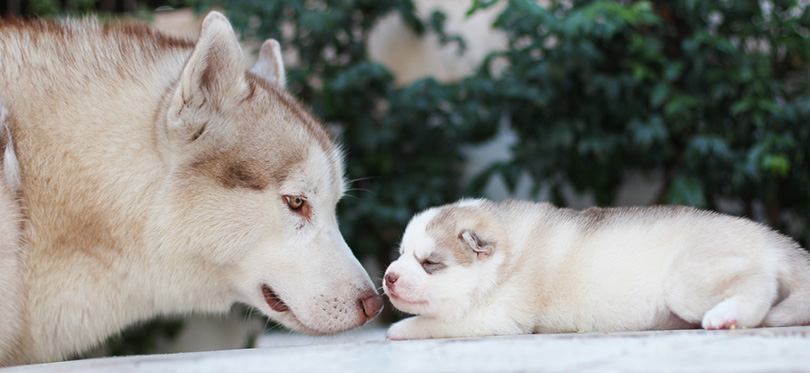

How Do Father Dogs React to Their Puppies?
Every male dog is different from its puppies. Their reactions range from affectionate to aggressive, which makes it crucial to be careful when meeting them for the first time. Father dogs can express several emotions when meeting their puppies for the first time.
Jealousy
Some dogs react jealously toward new puppies because of the attention they garner from their owners. Even the mother is showered with more affection (after all, she just gave birth or is actively nursing). This can lead to direct or indirect aggression on behalf of a male toward the mother and pups.
In a best-case scenario, jealousy is exhibited as avoidance. Father dogs may simply remove themselves from the situation or avoid interacting with the puppies altogether. Be sure to give him love and attention if he’s pouty to ensure he knows he’s still a valued family member.
Some dogs exhibit jealousy by physically interfering with their interactions with the puppies. This behavior can be dangerous. Even if they don’t intend to harm the puppies, they can do so by stepping on them. Mother dogs are very protective of their babies and will have no problem lashing out with aggression at a male dog that gets too close.
There is also the possibility of the father dog acting out aggressively toward the puppies and attacking them. An adult dog can easily kill or seriously injure puppies.
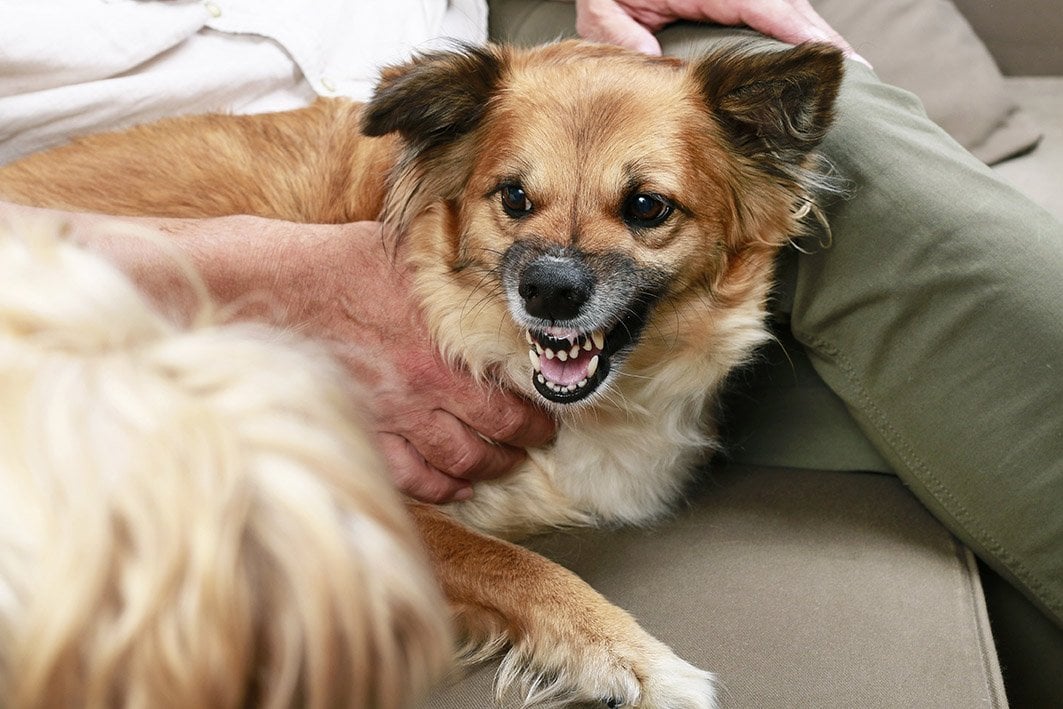
Indifference
Without paternal instincts drawing them to their puppies, many father dogs are simply indifferent to them. They ignore them or have no interest in interacting with them whatsoever. While this seems somewhat cruel to us, it’s the most common reaction for father dogs and one that doesn’t put the puppies in danger.
Affection
While it’s uncommon, some father dogs react lovingly to their puppies and assist in their care. They can be found cuddling with their puppies, cleaning them, or even gently carrying them around in their mouths. Owners who have experienced this behavior often see it as proof that father dogs recognize their pups, but it’s not necessarily true.
Dogs who are naturally more affectionate and loving may simply recognize the puppies’ vulnerability and act accordingly. Rather than a case of parental instincts, it’s usually a result of an empathetic dog.
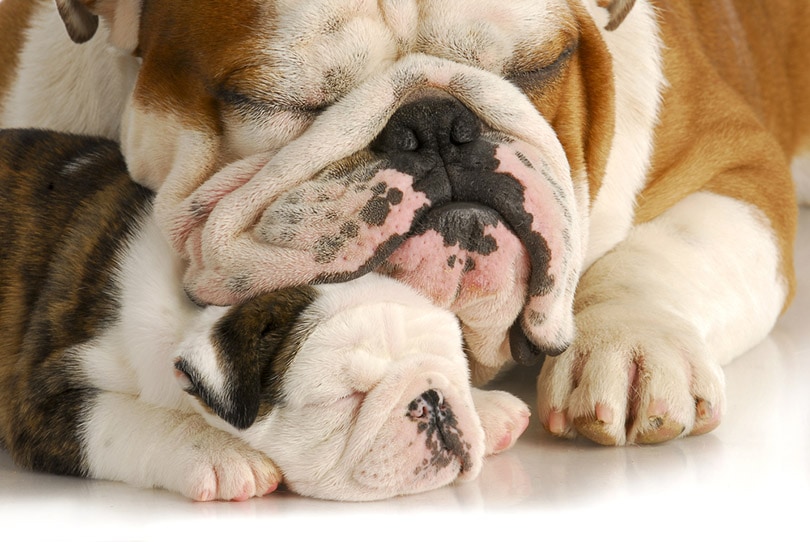
Should Father Dogs Be Kept Away from Puppies?
A good rule of thumb is to keep male dogs away from their litters for the first 20 days. The puppies are vulnerable during this time, and there’s no way to know how the male will react. After 20 days, allowing the puppies to interact with the father is beneficial. Ensure the first few visits are supervised to ensure the father displays friendly behavior and doesn’t exhibit reluctance or aggression towards the pups.

Final Thoughts
Father dogs do not recognize their puppies. They can be affectionate and empathetic toward the puppies, but it isn’t due to paternal instincts. Father dogs have a wide range of reactions when interacting with small pups, but most of the time, they ignore them. This is normal, but male dogs should be introduced to them carefully and under supervision for the puppies’ safety.
See Also:
- Can Dogs Recognize Faces? What Science Says
- Why Do Adult Dogs Grab Puppies by the Muzzle? Facts & FAQ
Featured Image Credit: kinga_fabik, Pixabay
